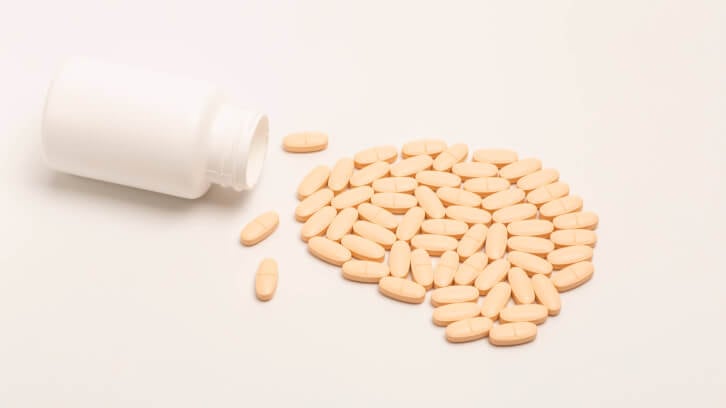The initial aim of the study was to provide an overview of the use of probiotics to reduce weight gain in patients with severe mental illness. Probiotics can normalize metabolism in obese patients and animal models of obesity, indicating that probiotic-induced changes in microbiota composition might be beneficial for body weight, the researchers noted.
However, they found that synbiotics were more effective for this purpose in those with mental disorders.
“The augmentation with probiotics alone did not influence weight gain significantly,” the researchers wrote. “The intake of pro-, pre- and synbiotics was well tolerated, and one study showed changes in the gut microbiota in the group with synbiotics… [They] might be an effective strategy to reduce antipsychotic-induced weight gain.”
Study findings
Two reviewers assessed articles published prior to June of 2022 to identify studies where probiotics were administered to people with schizophrenia or depression. They explored weight-related measurements, metabolic blood parameters and gut microbiota of study participants.
Of the four studies identified, two did not find significant effects of probiotics on weight gain caused by antipsychotics. The other two studies explored the effects of synbiotics on participants with psychiatric conditions, and they demonstrated individuals with this combined intervention gained less weight.
“Adjustments in diet can be helpful and are generally well-accepted interventions in the fight against pharmacologically induced weight gain,” the researchers explained. “The clinical use of probiotics and prebiotics (or synbiotics) as dietary interventions may represent a promising additional strategy in this regard.”
The authors acknowledged that there are few studies available that were able to draw a definitive conclusion.
Side effects of antipsychotics
Individuals with severe mental illness have an increased risk of obesity and metabolic complications, resulting in a decreased quality of life and reduced life expectancy of up to 25 years, the researchers noted.
This population may have unhealthy eating habits and reduced physical activity, but they are also influenced by the side effects of antipsychotics and antidepressants. These drugs are known to increase appetite, weight gain and long-term metabolic syndrome. Metabolic side effects can be a risk factor for cardiovascular diseases, cancer, diabetes or fatty liver disease. These outcomes may also lead psychiatric patients to stop taking their medication, increasing the risk of relapse.
Antipsychotics and antidepressants also reduce microbial diversity. This lack of gut diversity can impact weight gain and cardiovascular-related conditions, making it harder to regulate caloric intake or physical activity. Additionally, some patterns of microbiotal composition may be associated with multiple diseases.
“For instance, the microbiomes in patients with mental disorders, such as schizophrenia, bipolar disorders, depression, anxiety disorders, PTSD and eating disorders, were shown to have decreased diversity compared to the microbiome in healthy controls,” the researchers wrote. “In general, patients with mental disorders were shown to have fewer bacterial genera that produce short-chain fatty acids (e.g. butyrate) and higher levels of lactic acid-producing bacteria, and bacteria associated with glutamate and GABA metabolism.”
Moreover, some antipsychotics and antidepressants can have antibiotic effects. This is one reason that treatment with psychiatric medication is connected to a less diverse microbiome composition, which is associated with weight gain, the study suggested.
“Further studies are needed to gain more knowledge about the way probiotic or prebiotic compositions affect the microbiome and how this is correlated with weight changes and other metabolic risk factors,” the researchers wrote.
They added that the potential effect of probiotics or prebiotics alone or in combination is embedded in a complex process in individuals with mental disorders.
Source: Translational Psychiatry
doi: doi.org/10.1038/s41398-024-02735-z
"Are probiotics effective in reducing the metabolic side effects of psychiatric medication? A scoping review of evidence from clinical studies."
Authors: Sonja Mötteli et al.



